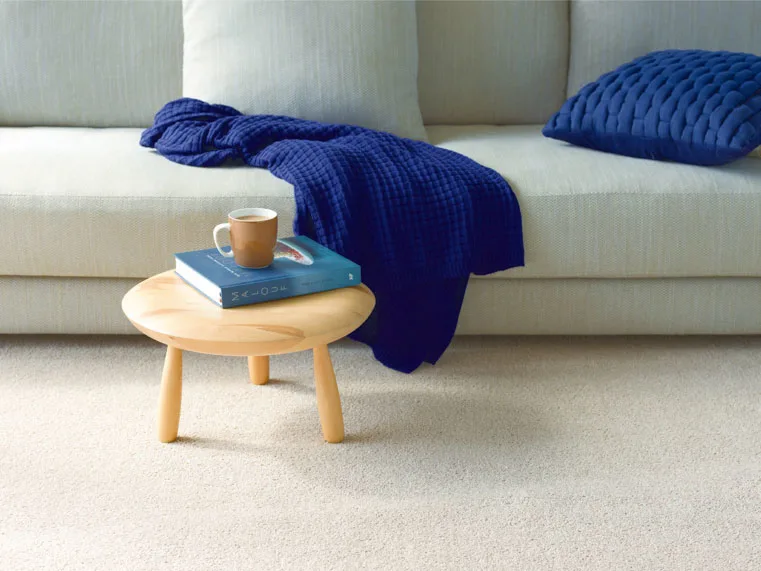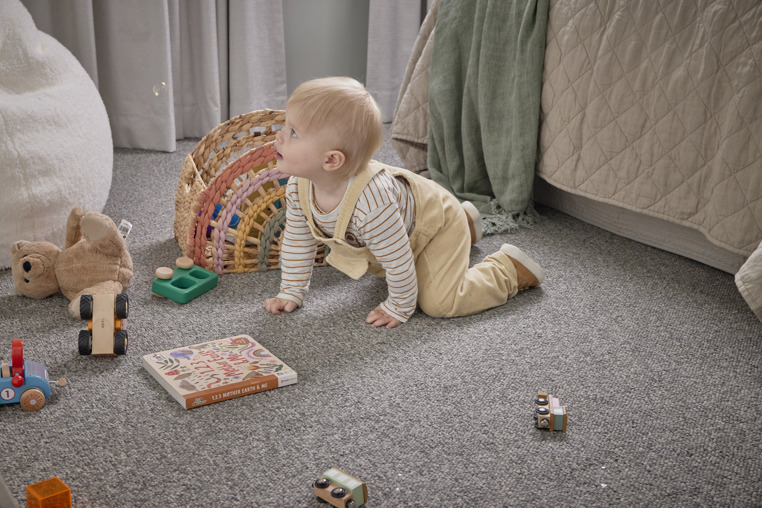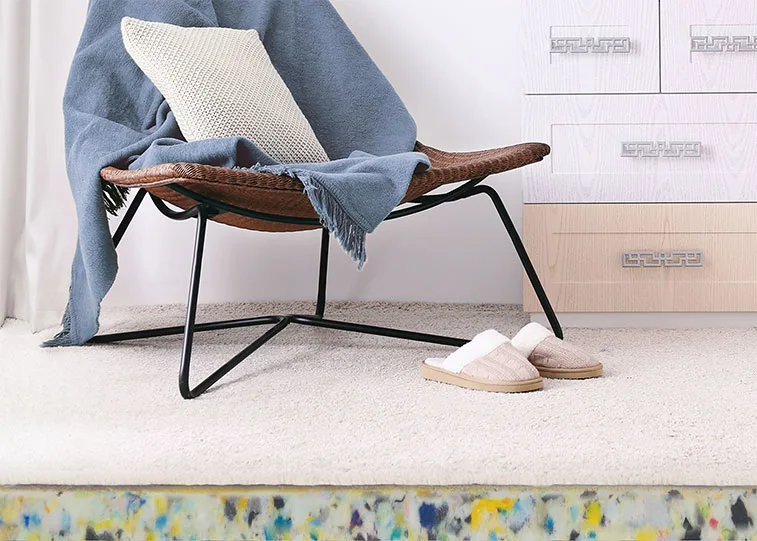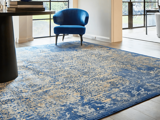Flooring Underlay - it's a term that may not immediately ignite your excitement when planning a renovation. After all, it's invisible, unassuming, and often overlooked. However, what if we told you that this seemingly inconspicuous layer plays a pivotal role in elevating your flooring experience to extraordinary heights?
Let's delve deeper into the world of flooring underlay, where ordinary floors become extraordinary, and every step is a testament to comfort, longevity, and quality. Your home's transformation begins here, beneath your feet, where the magic of carpet underlay unfolds.
WHAT IS UNDERLAY?
Flooring underlay is a layer of material placed between your structural subfloor (the floor's foundation) and your chosen flooring material (like carpet, laminate, or hardwood). Its primary purpose is to provide cushioning, support, and various functional benefits to enhance the performance and longevity of your floor. Flooring underlay can be made from various materials such as foam, rubber, felt, or plastic, and it helps ensure a smoother, more comfortable, and durable surface for your flooring.

IMPORTANCE OF UNDERLAY
Imagine the contrast between walking on carpet or timber floor installed directly on concrete or a hard subfloor versus walking on one with the added cushioning of underlay. The difference is profound.
Here are some of the key importance of flooring underlay:
1. Provides Extra Insulation
A quality underlay adds a layer of insulation to your flooring. The added insulation helps maintain a warmer and cosier ambience within your living spaces, which is particularly appreciated during cold winters.
2. Extends Carpet Longevity
While wear and tear are inevitable for any flooring, underlay can significantly prolong your carpet’s lifespan. It acts as a protective barrier, keeping your carpet looking newer for longer.
3. Minimise Furniture Indentations
Heavy furniture can leave slight indentations on your carpet over time. Underlay acts as a buffer, reducing these marks and improving the overall appearance of your carpet areas.
4. Reduces Noise
Depending on the thickness of the underlay, it can reduce the noise caused by footsteps and the movement of furniture, creating a quieter and more peaceful environment.
5. Provides Support
Underlay provides vital support for your carpet, extending its longevity by offering a layer. This also helps in reducing friction, especially in heavy traffic areas between the concrete and the carpet or timber flooring.
6. Adds Comfort
Walking on a floor with a good quality underlay enhances the experience. It feels naturally soft and the extra cushioning makes the whole experience delightful.

DIFFERENT TYPES OF FLOORING UNDERLAY
Choosing the right underlay is essential for optimising the performance, comfort, and longevity of your flooring. Each type of underlay has its unique characteristics, making it suitable for specific flooring materials and environments. Selecting the appropriate underlay ensures that your floors not only look great but also provide the functionality and comfort you desire.
Let’s take a deep dive into the different types of flooring underlay:
1. Felt Underlay
Crafted from the warmth of wool, felt underlay offers both comfort and affordability. Its devoid of volatile organic compounds (VOCs), makes it an excellent choice for the environmentally conscious. While it provides solid support for carpeted floors, it's worth noting that felt underlay may not match the durability of some other options.
2. Combination Underlay
A perfect blend of strength and versatility, combination underlay combines the best of rubber and felt. This hybrid creation offers robust support for carpeted floors, exceptional thermal insulation, and a lasting presence. If you seek a well-rounded underlay solution, this harmonious marriage of materials may be your ideal choice.
3. Rubber Underlay
When it comes to withstanding the trials of low to high foot traffic, rubber underlay stands as a dependable companion. It cradles your feet in comfort while maintaining durability over time. For those who value eco-friendliness, crumb rubber underlay, born from the reincarnation of used car tires, serves as a responsible choice with its impressive sound insulation properties.
4. Foam Underlay
Embracing the spirit of recycling, foam underlay takes shredded sponge materials and melds them into a lightweight, adaptable form. Thickness plays a pivotal role in this underlay's performance, as thicker variants excel at heat and sound insulation. Soft underfoot, it transforms bedrooms into havens of comfort.

KEY CONSIDERATIONS FOR CHOOSING THE RIGHT FLOORING UNDERLAY
So you now have a fair idea of what is flooring underlay, its importance and the varieties to choose from. But if you are considering renovating your existing floors or building a new one, it is important to consider a few factors that might help you choose the right underlay that is perfect for your flooring needs.
Let’s look at some of the factors to consider before laying your new floors:
If you've chosen a thinner carpet, you might consider opting for a slightly thicker underlay. This choice adds extra cushioning while maintaining your carpet's aesthetic appeal.
For those contemplating wool carpets in spaces such as bedrooms, hallways, or stairwells, felt underlay emerges as a top choice. This preference arises from felt underlay's ability to deliver exceptional underfoot comfort and its capacity to preserve the resilience of wool carpets, preventing them from becoming flattened over time.
2. Type of structural floor
Are you planning to install your carpet over a concrete floor or in a space with underfloor heating? These considerations play a vital role in selecting the right underlay, ensuring it offers the appropriate levels of insulation, soundproofing, and shock absorption.
When dealing with harder flooring surfaces, like concrete, sponge rubber underlay emerges as an excellent choice. It not only offers durability but also provides effective insulation, particularly essential when the floor material tends to be cold.
3. Type of room
Consider tailoring your underlay choice to the specific needs of each room. For instance, when re-carpeting a bedroom, prioritise underlay with exceptional insulation and noise reduction properties.
In contrast, stairs require a versatile, easy-to-install underlay, given their challenging surfaces.
Take into account your furnishings as they can impact your underlay decision. To safeguard your carpet from permanent indentations caused by heavy furniture, opt for denser underlays such as crumb rubber or smooth rubber.
Thoroughly assess your unique requirements and make informed underlay choices, as they can substantially enhance both your carpet and your overall home environment.
At Choices Flooring, we pride ourselves on being your trusted partner in making the best flooring decisions for your home. We understand that choosing the perfect flooring can be a daunting task, as it involves a myriad of options, styles, and considerations. That's where we come in – to simplify the process and offer you expert guidance every step of the way.
We believe in taking the guesswork out of the equation because we recognise that your flooring choice is not merely a practical decision but also a reflection of your unique taste and lifestyle.
Visit your nearest Choices Flooring store today or browse through our website www.choicesflooring.com to find your perfect match.









